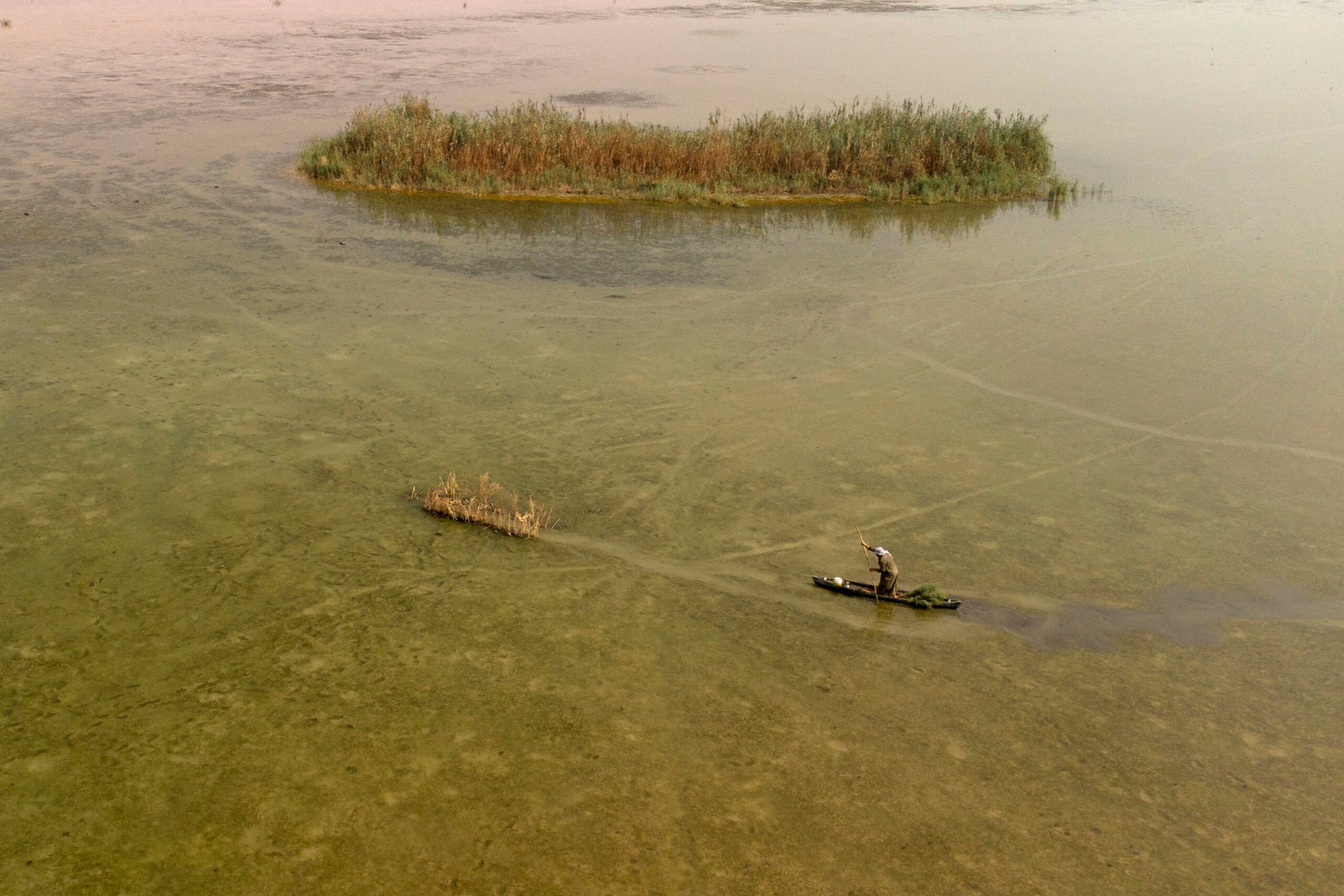
Surface and groundwater
Iraq depends on water that flows into the country from the Euphrates and Tigris as well as a number of tributaries. Reductions in the flows of these rivers resulting from upstream agricultural development, population growth, industrial development, dam construction and other water diversions place Iraq in a tenuous position. This vulnerability is exacerbated by a lack of permanent agreements regarding water allocation of the major rivers or quality of the water that reaches Iraq’s borders.
Over the next 20 years, the population living in the Euphrates-Tigris basin is expected to increase by more than 9 million people across Turkey, Syria and Iran (Figure 1).
Concurrent with this population growth, Turkey, Syria and Iran will add more than 1.5 million hectares of agricultural land within the Euphrates and Tigris watershed. By 2035, the total cultivated land within these three countries will amount to nearly 2.5 million hectares if full agricultural development is achieved.[2] This intensive agricultural expansion will substantially increase the water consumption outside of Iraq, thereby worsening the water quality and reducing the water quantity Iraq receives.
When the Ministry of Water Resources developed its national water strategy, it was estimated that if 100% of the planned irrigation projects and water diversions in the upstream countries were implemented, Iraq would have 24% less water available in 2035 than today. Even if only 75% of the planned projects go ahead, Iraq’s water availability will be reduced by 21%. Equally importantly, upstream intensification of agricultural practices is projected to significantly affect the quality of the water that reaches Iraq due to progressive salinization of fresh water.[3]
The prospective reduction in water quality and quantity makes it imperative for Iraq to manage its water situation comprehensively – both through dialogue with its upstream neighbours and through managing its domestic water consumption. The consequences of inaction can already be observed in cases such as the water crisis in Basra in 2018 and 2019, which was caused by both mismanagement within Iraq and a significant decrease in river runoff from neighbouring countries.
Treaties and agreements
Bilateral and tripartite meetings have taken place between Turkey, Iraq and Syria since the mid-1960s. Despite the various attempts to negotiate a water-sharing agreement, the three riparians have disagreed on the division of water quantities and embarked upon unilateral water sector projects.[6]
The agreements that do exist include:[7]
Syria-Turkey
1987 – The Protocol on Economic Cooperation is an interim agreement on water quantity, which states that an annual 16 BCM (500 cubic metres per second) is to be released at the Syrian-Turkish border.
2009 – The Turkish-Syrian Strategic Cooperation Council Agreement addresses joint activities in the field of water such as the improvement of water quality, the construction of water pumping stations and joint dams as well as the development of joint water policies.
Iraq-Syria
1990 – The Syrian-Iraqi Water Accord allocates the water of the Euphrates according to a fixed ratio of 42% to Syria and 58% to Iraq.
Iraq-Turkey
2009 – The Memorandum of Understanding (MoU) on Water is one of 48 MoUs signed between the two countries. Both sides agreed to share hydrological and meteorological information and exchange expertise in these areas.
2014 – The 2009 MoU was amended to include plans for future joint water management projects, among them the assessment of current water resources and water uses and potential climate impacts. This assessment is intended to be used to determine an ‘equitable and reasonable’ share of river water for Iraq.
Water negotiations between Iraq and Iran on the shared tributaries to the Tigris have not produced any tangible outcomes so far.
[1] Data elaborated from The World Bank database.
[2] The concept of 100% upstream development means that all of the known planned irrigation projects and water control infrastructure along the Tigris watershed in Iran and Turkey are fully implemented by 2035, and Iraq will be guaranteed a minimum of 9,145 BCM annually along the Euphrates River (i.e. the existing agreements between Turkey and Syria and Syria and Iraq will be kept in place) and all projects located along the Tigris River in Turkey are fully developed.
[3] Ministry of Water Resources of Iraq, 2014. Strategy for Water and Land Resources of Iraq 2015-2035.
[4] Lossow, T von et al., 2022. Action Needed: Three Priorities for Iraq’s Water Sector. Water, Peace and Security Partnership; Kibaroglu, A and Sayan, R C, 2021. ‘Water and ‘imperfect peace’ in the Euphrates-Tigris river basin’. International Affairs 97(1): 139-155.
[5] Kibaroglu, A, 2019. ‘State-of-the-art review of transboundary water governance in the Euphrates-Tigris river basin’. International Journal of Water Resources Development 35(1): 4-29; Mueller, A et al., 2021. Climate Change, Water and Future Cooperation and Development in the Euphrates-Tigris Basin. CASCADES.
[6] UN-ESCWA and BGR (United Nations Economic and Social Commission for Western Asia; Bundesanstalt für Geowissenschaften und Rohstoffe), 2013. Inventory of Shared Water Resources in Western Asia.
[7] Ibid; Kibaroglu, A, 2019. ‘State-of-the-art review of transboundary water governance in the Euphrates-Tigris river basin’. International Journal of Water Resources Development 35(1): 4-29.
